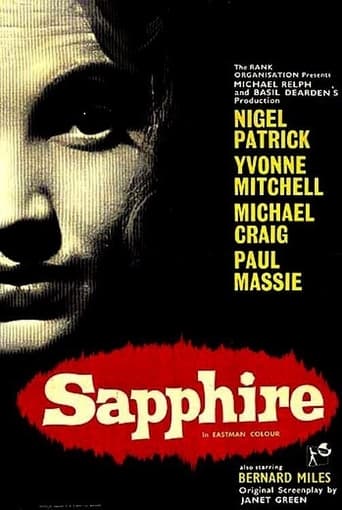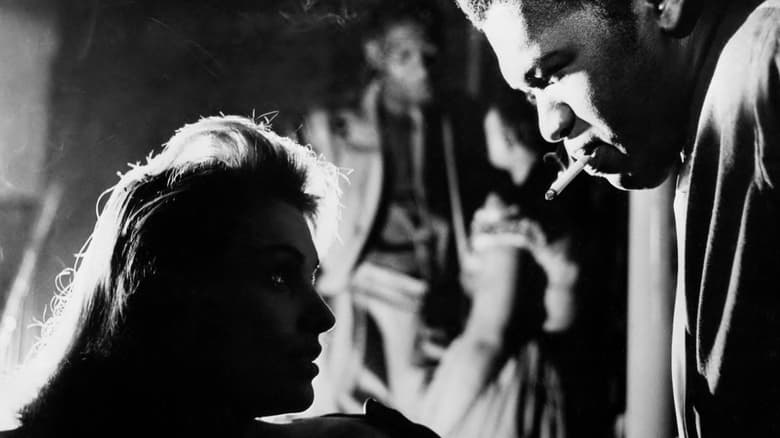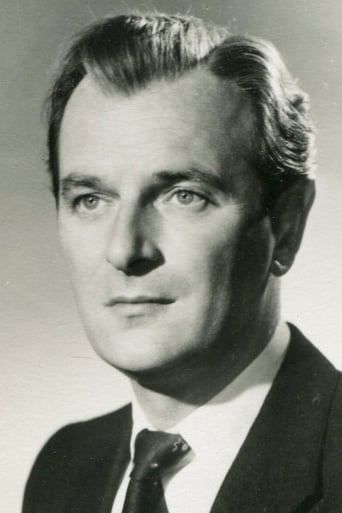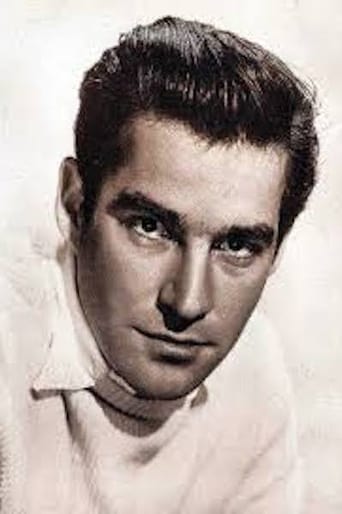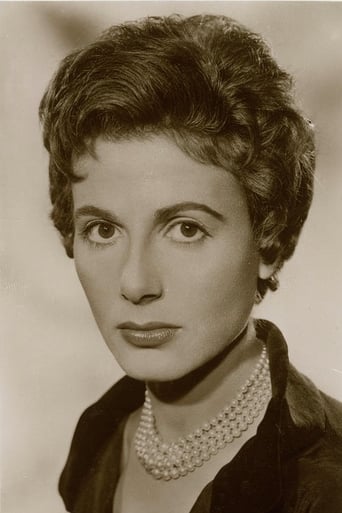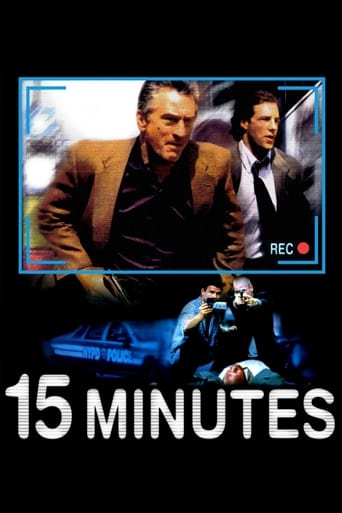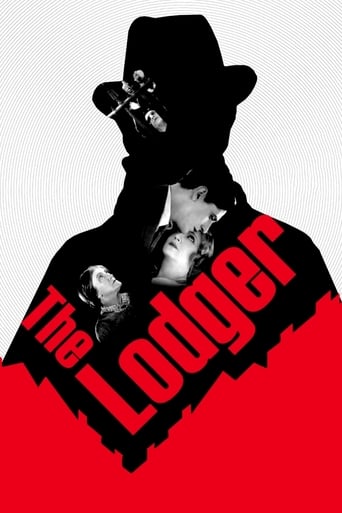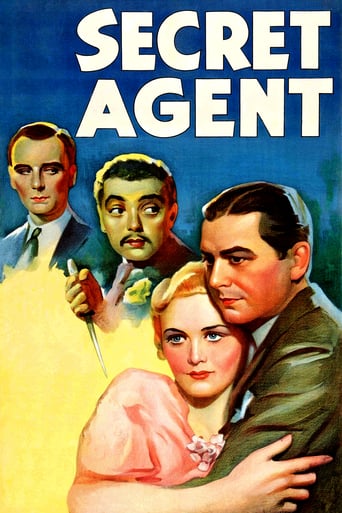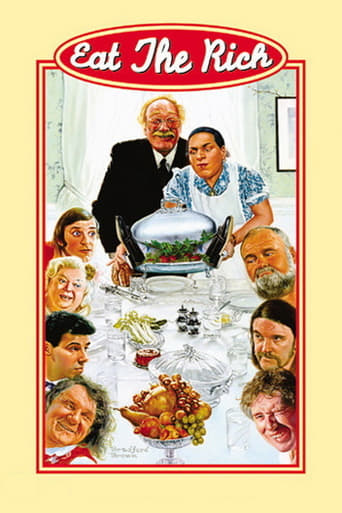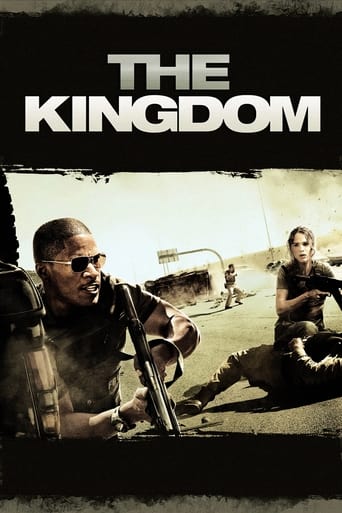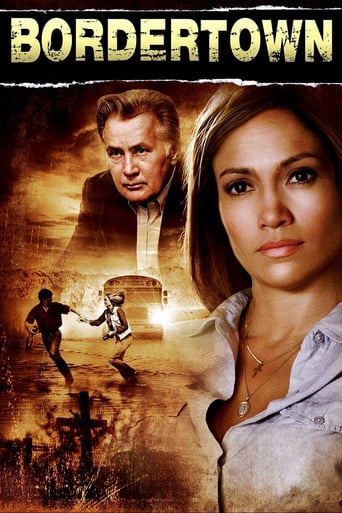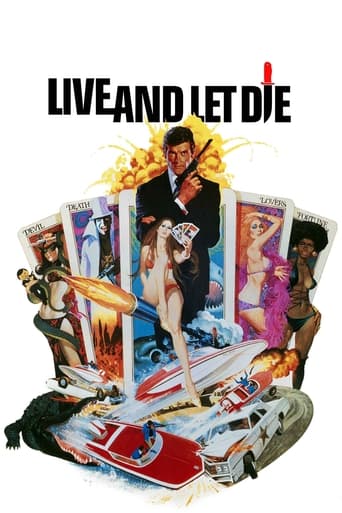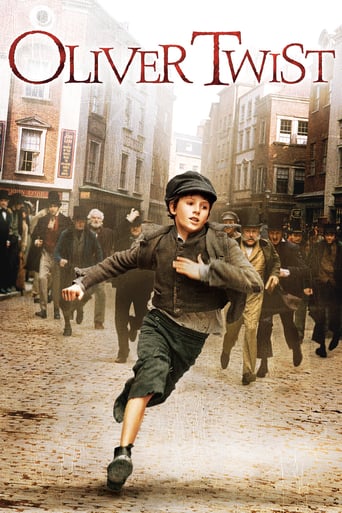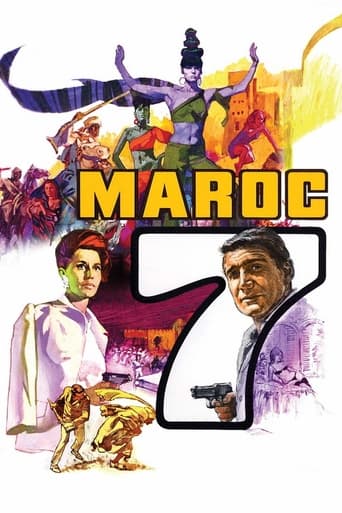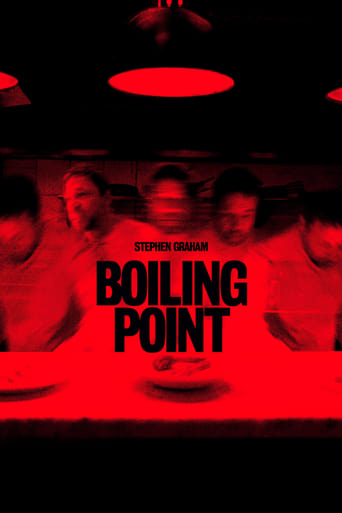Sapphire (1959)
Two Scotland Yard detectives investigate the murder of a young woman of mixed race who had been passing for white. As they interview a spate of suspects -- including the girl's white boyfriend and his disapproving parents -- the detectives wade through a stubbornly entrenched sludge of racism and bigotry.
Watch Trailer
Cast


Similar titles
Reviews
As Good As It Gets
Easily the biggest piece of Right wing non sense propaganda I ever saw.
It’s fine. It's literally the definition of a fine movie. You’ve seen it before, you know every beat and outcome before the characters even do. Only question is how much escapism you’re looking for.
It’s sentimental, ridiculously long and only occasionally funny
What should had been a routine murder mystery set in late 1950s London takes a more heated dimension under the hands of director Basil Dearden who introduces for the time the subject of race relations. London had race riots the year before this film was released.The film opens with the body of a white woman being found, Sapphire. Detectives Robert Hazard (Nigel Patrick) and Phil Learoyd (Michael Craig) investigate the case. They then meet her brother who has come down from Birmingham, Dr Robbins (Earl Cameron) who is black. Hazard assumes Sapphire was his half sister. Dr Robbins tells him that one parent was white the other black. Sapphire was pale enough to pass as white, he came out as more darker. When Learoyd sees him we can tell he does not like black people.Sapphire's boyfriend David Harris (Paul Massie) becomes a suspect, until just before her death he and his family did not know she was coloured and it turns out she was also pregnant.The film does not pull many punches regarding pervading prejudice of the time. Basil Dearden made a name for tackling difficult subjects, he would later make the film, 'Vicitm' that dealt with homosexuality. It is also an effective thriller although you do pick up enough clues to figure out who the killer is.
Excellent film, directed by Basil Dearden, who directed Dead of Night and Victim, two marvelous movies.Sapphire takes place in the '50s - the film was released in 1959 - in England. A young woman is found dead in a park. It turns out her name is Sapphire Robbins, and she was engaged to a young man, David Harris (Paul Massie). The autopsy shows that she was three months' pregnant, and David admits that he was the father.When Sapphire's brother (Earl Cameron) shows up, the superintendent in charge of the case (Nigel Patrick) is surprised that he's black. Sapphire was passing. The detective wonders if the Harris family knew - - and when they knew it. David had won a scholarship and was to go off to school - could he be saddled with a wife and child? His father (Bernard Miles) is very protective of him, and his sister (Yvonne Mitchell) is somewhat abrasive.This is the story of underlying prejudice and assumptions about black people that were pervasive at the time, particularly when this film was made. Notting Hill race riots took place in 1958. These prejudices are expressed by the inspector on the case (Michael Craig), especially the myths of black sexuality.Dearden liked to tackle these tough subjects, which he does very well, showing it as an underlying constant. Landladies have "white" houses, black friends dropped by Sapphire when she found out she could pass seem to understand her dropping them. The scene at the Tulips Club is the best in the film, with pulsating bongos and wild dancing. The camera veers all over the room, showing twirling skirts, legs, black people dancing with women who appear to be white. There a man tells the superintendent no matter how white a woman is, you can tell she is actually black because she can't resist the sound of the bongos. Very strong acting throughout, particularly by stage actress Yvonne Mitchell. One thing that shows that Dearden knew what he was doing -- people's reaction to death. When the woman in the park discovers the body, she doesn't scream. And when David learns of the death of Sapphire, he seems shell-shocked and numb. Sapphire's brother seems very calm, finally breaking down and asking, "How could anyone do this?" All very realistic, all not over the top.A must see - it is available on Netflix and on Amazon instant video.
British cinema in the 50s saw an explosion of realistic "kitchen sink" dramas that tried to explore the problems the post war generation faced. "Cosh Boy" (1952) dealt with kids running wild, "Violent Playground" (1957) with juvenile delinquency and the problems associated with high rise housing estates. Even though Janet Green's list of screenplay credits are short, each of them can take their place among the best British films of the 50s and 60s (except "Midnight Lace"). They usually featured strong story lines, often about minorities ("Life for Ruth", also with Michael Craig dealt with Jehovah's Witnesses, "Victim" was about homosexuality)."Sapphire" must have caused a sensation when it was first released. It deals with racism in all forms, white against black, black against black (one of Sapphire's former boyfriends says "My father would never allow me to marry Sapphire - she is only half black!!!").The film begins with the startling discovery of the body of a young arts student. When her brother comes down to identify the body, Sup. Hazard (Nigel Patrick) realises that Sapphire is black!!! From then on Hazard encounters racism at every turning. His partner (Michael Craig) says "these spades should be sent home to their own country". The landlady, is very protective of Sapphire but when she learns of the girl's heritage she is horrified. Sapphire's friend then gives the landlady a piece of her mind but when the landlady retorts with "When you introduced Sapphire to your parents - did you tell them she was coloured" there is silence. "Well I am not the only one who is racist" - that is extremely true in this film.Sapphire is pregnant (something else that would have shocked 50s audiences) and engaged to David (Paul Massie) whose family is a caulderon of racial tension. The mother is nice, the father (Bernard Miles) is an racist and the daughter, as a constable says "she's her father all over again". David is introverted and under the father's thumb. Yvonne Mitchell is riveting as Mildred, whose bottled up racism explodes in a scene that catches everyone by surprise (maybe not Sup. Hazard). She is married to a merchant seaman and has twin daughters, who she is very ambitious for. She is very jealous of the love she perceives Sapphire and David have for each other. Unfortunately, Sapphire is "passing for white" so the happiness is not going to last.Highly recommended.
When a young woman's body is discovered on London's Hampstead Heath, the ensuing investigation quickly focuses on racial bigotry and hatred in 1950s Britain, exposing the prejudice amongst those under investigation AND those investigating.Like so many other films from the 1940s and 1950s, Sapphire is yet another piece of groundbreaking British cinema now long forgotten. A little clunky and overly reliant on stereotyping by today's standards, but still a fascinating exploration of the fears and struggles inherent in a newly mixed-race society. Dearden has brought together an interesting cast here, cleverly giving matinée idol Craig a fairly unsympathetic role as a racist police officer, and being superbly served by Mitchell - her final scene is at once both compelling and distressing. Too many British cinema actors of the 40's and 50's have now been forgotten, and Mitchell is a prime example of why individual and collective reappraisals and retrospectives are long overdue.Interesting companion piece to 1961's Flame In The Streets, then, and definitely worth catching if you can.

